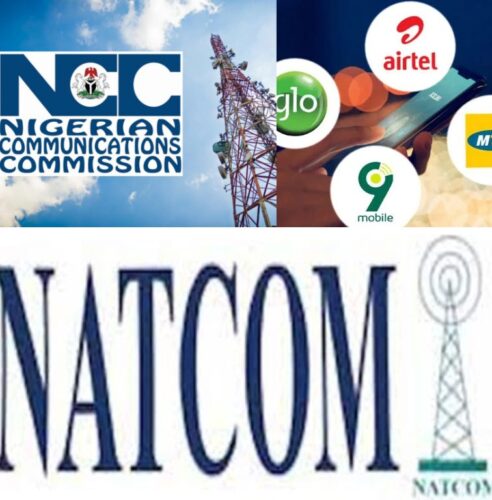
Telecommunication subscribers in Nigeria are now paying 65.22 percent more for 1GB of data following a tariff adjustment approved by the Nigerian Communications Commission (NCC) in January 2025. This marks the first major price revision in over a decade, as operators cite increasing economic pressures as the catalyst for the increase.
The NCC’s directive allowed a 50 percent rise in charges for voice calls, SMS, and data services. As a result, the floor price for calls increased to ₦9.60 per minute from ₦6.40, while SMS rates went up to ₦6 from ₦4. Data costs surged to ₦431.25 per gigabyte, up from ₦287.5.
Leading telecom operators—MTN Nigeria, Airtel Nigeria, Globacom, and 9mobile—have since adjusted their pricing models to align with the new guidelines. A market analysis shows that the average cost of 1GB now stands at ₦475, marking a 65.22% rise from the former average of ₦287.5, based on the rates published on operators’ websites.
Airtel’s 1GB plan now costs ₦500 from ₦350, MTN has increased its price to ₦350 from ₦200, Globacom (Glo) raised its 1GB plan to ₦750 from ₦300, though the new plan now offers 1.1GB instead of just 1GB while 9mobile remains unchanged, maintaining its ₦300 rate.
The data hike has sparked public outrage, especially as Nigerians increasingly rely on digital platforms for work, education, and social connectivity. With monthly internet usage reaching over 1 million terabytes, affordable data has been essential for sustaining economic and social activities.
For instance, MTN faced heavy criticism for raising its 15GB weekly plan from ₦2,000 to ₦6,000, a move that prompted widespread complaints on social media. “Nigeria is a very difficult place to live in. MTN waking up one day to increase their weekly 15GB data from 2k to 6k without warning is insane. That’s 24k a month—almost the minimum wage—just on data. This is hell,” lamented a user on X (formerly Twitter).
Another user commented that “MTN’s decision to triple the cost of its 15GB subscription is a reflection of harsh economic realities, but still a tough pill to swallow.”
Following the backlash, MTN scrapped the 15GB weekly plan and issued an apology to its subscribers.
Beyond higher prices, customers are also struggling with reduced data bundles and fewer promotional offers, making affordable internet access increasingly difficult. “I used to buy ₦1,500 worth of data and use it for over a week. Now, that same amount is gone in two to three days,” shared John Felix, a frustrated user. Another annoyed subscriber, Lolade Akinyemi said “I spend more than double on data now. It’s getting harder to cope.”
Despite widespread dissatisfaction, telecom operators argue that the adjustments are necessary to ensure industry viability amid rising operational costs. Ayham Moussa, Chief Operating Officer (COO) of MTN Nigeria, acknowledged an initial decline in data consumption but expects usage to stabilize over time. “It’s normal to see a drop in customer usage at first. But data remains critical to daily life, so we expect demand to recover,” Moussa noted.

On the regulatory front, the NCC has defended the tariff increase, emphasizing the need to balance consumer protection with industry sustainability. “The NCC understands the financial strain on households and businesses and remains empathetic. However, these adjustments are essential to ensure the sector’s sustainability, support local suppliers, and promote Nigeria’s digital economy,” the Commission stated.
The National Association of Telecoms Subscribers (NATCOMS) has condemned the price hikes, arguing that the changes exacerbate economic hardships for many Nigerians. “The increase has brought untold hardship to millions, forcing people to cut back on their telecom needs,” said Adeolu Ogunbanjo, President of NATCOMS.
NATCOMS has initiated legal action against the tariff increase, while the Nigeria Labour Congress (NLC) has also voiced opposition, threatening protests if the decision is not reversed.
Nigeria, which accounts for approximately 29% of Africa’s internet consumption, has made notable progress in reducing extreme poverty through improved digital access. According to the World Bank, expanded internet coverage over three years helped cut extreme poverty in the country by 7%.
Consumer advocates argue that rising data costs could reverse these gains, limiting access to education, economic opportunities, and essential services.
As debates continue, industry players and regulators face the challenge of balancing profitability with affordability, ensuring that digital connectivity remains accessible to the broader population.


